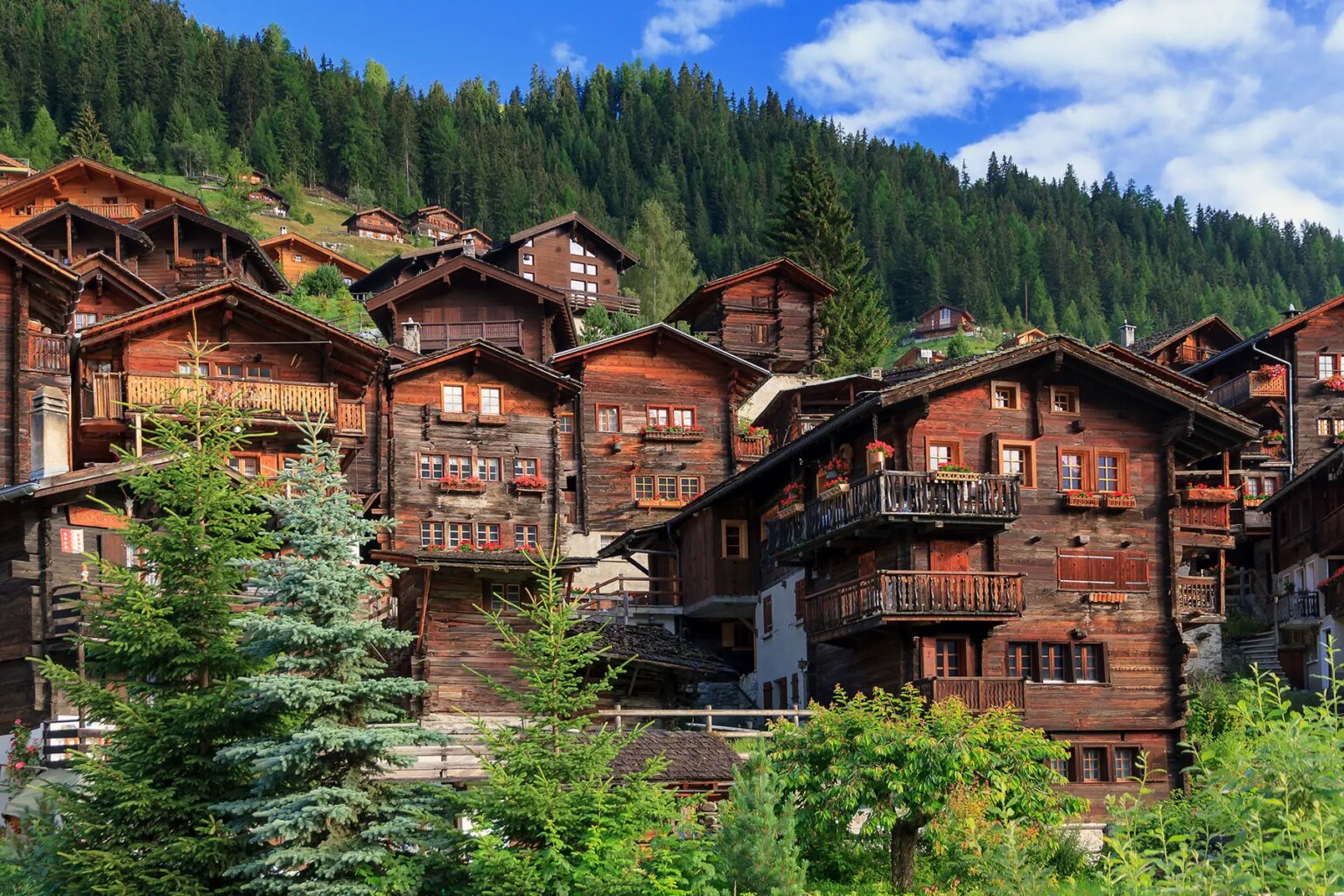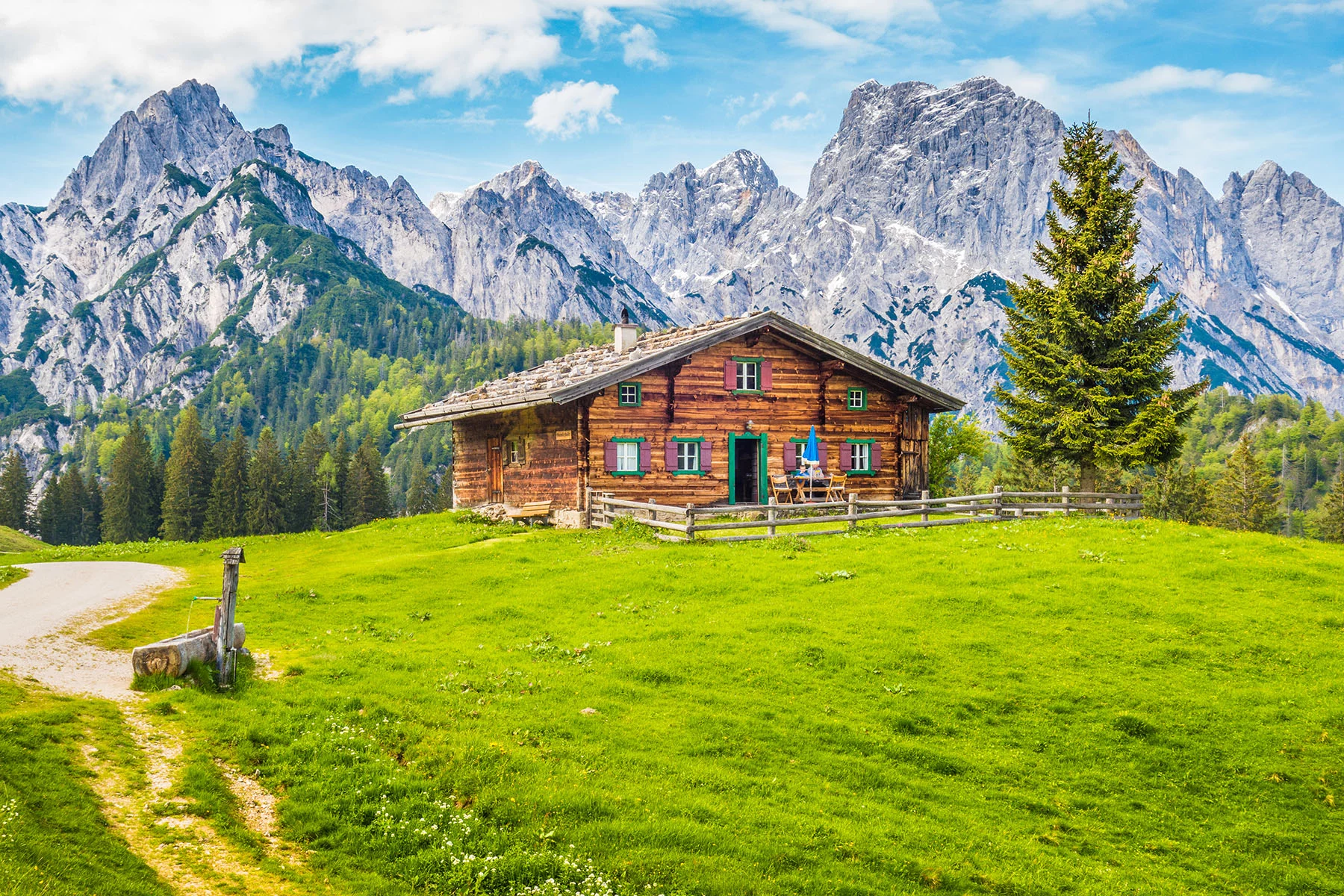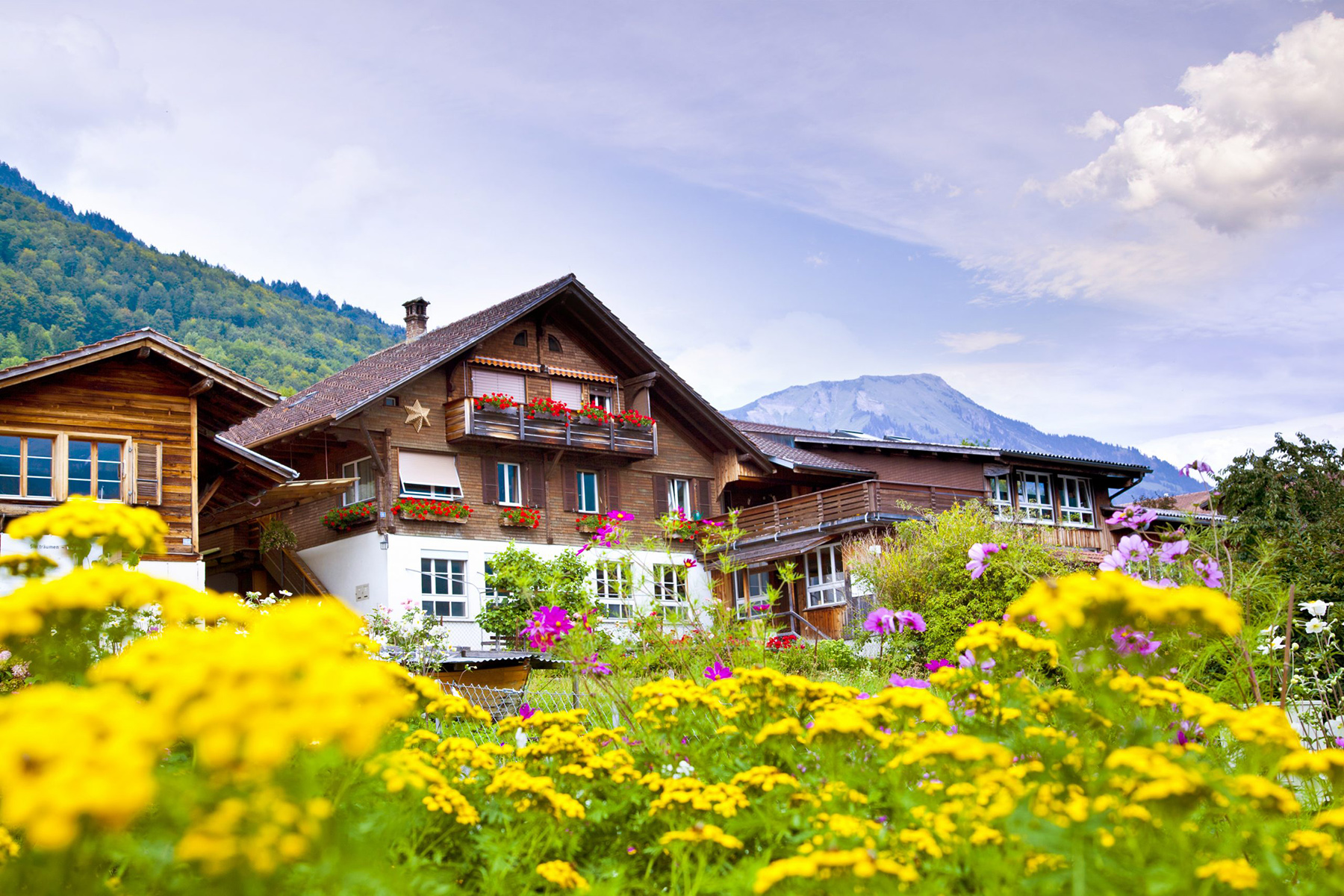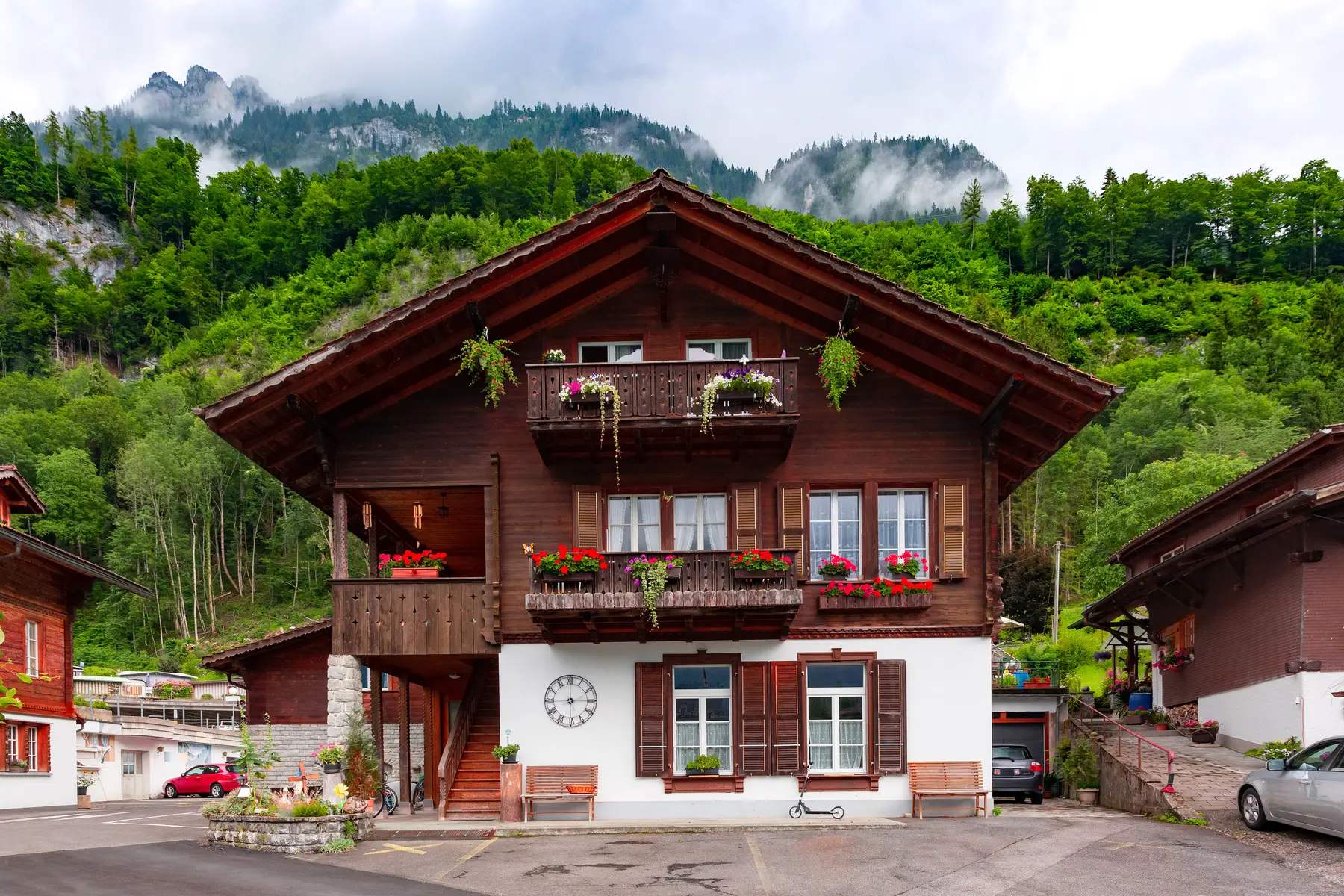Housing in Switzerland is pretty diverse. Prices vary greatly across the different cantons and you will find a wide range of accommodation types to buy or rent.
This guide covers all the basics of housing for expats moving to Switzerland. Sections include the following topics:
- An overview of housing in Switzerland
- The housing market in Switzerland
- Housing laws and regulations in Switzerland
- Buying or renting in Switzerland?
- Renting in Switzerland
- Buying a home in Switzerland
- Affordable housing in Switzerland
- Sustainable housing in Switzerland
- Mortgages in Switzerland
- Selling a home in Switzerland
- Building a home in Switzerland
- Useful resources
An overview of housing in Switzerland
Switzerland has one of the lowest homeownership rates in Europe. According to 2018 figures, around 42% of Swiss residents own their own homes; this compares to around 70% in the European Union. Figures are broadly similar for both nationals and expats, with homeownership more common in Switzerland’s rural areas.
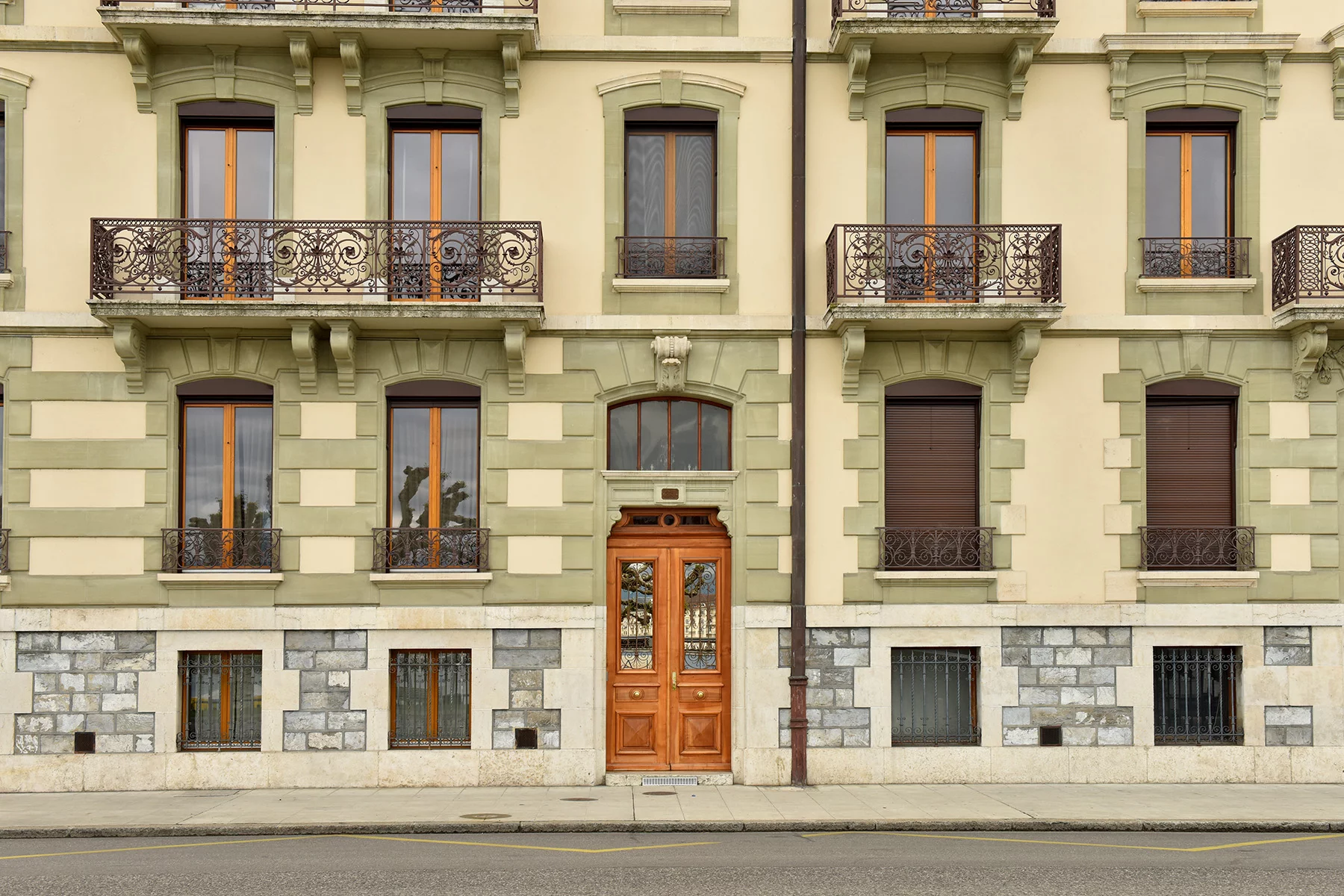
You can find a variety of property types in Switzerland to buy or rent. These include apartments in tenement blocks, detached houses, farmhouses, and even a few chateaus. Prices tend to be more expensive in the more populous cities such as Geneva and Zurich.
The housing market in Switzerland
Swiss house prices are now rising steadily again; in fact, they recorded a year-on-year increase of 4.4% in December 2020. This follows a dip in 2017 for the first time in over 15 years.
Switzerland is the third-most expensive country in Europe to buy property per square meter, behind only Monaco and the United Kingdom. Current average prices are:
- CHF 665,000 to buy an apartment (CHF 6,356 per square meter)
- CHF 1,030,000 to buy a house (CHF 5,941 per square meter)
Rental prices are:
- CHF 1,570 to rent an apartment (CHF 258 per square meter)
- CHF 2,690 to rent a house (CHF 231 per square meter)
Prices vary significantly between the Swiss cantons. Geneva (CHF 13,500 per square meter to buy a house) is the most expensive. Basel (CHF 10,000) and Zurich (CHF 8,633) are also higher than the average. Jura (CHF 3,252) is the cheapest.
Housing laws and regulations in Switzerland
Swiss property law has remained fairly consistent since 1907, undergoing no major changes. Foreigners can buy housing in Switzerland on the same basis as Swiss citizens if they are an EU/EFTA national with a Swiss residence permit or if they are a third-country national with a C residence permit.
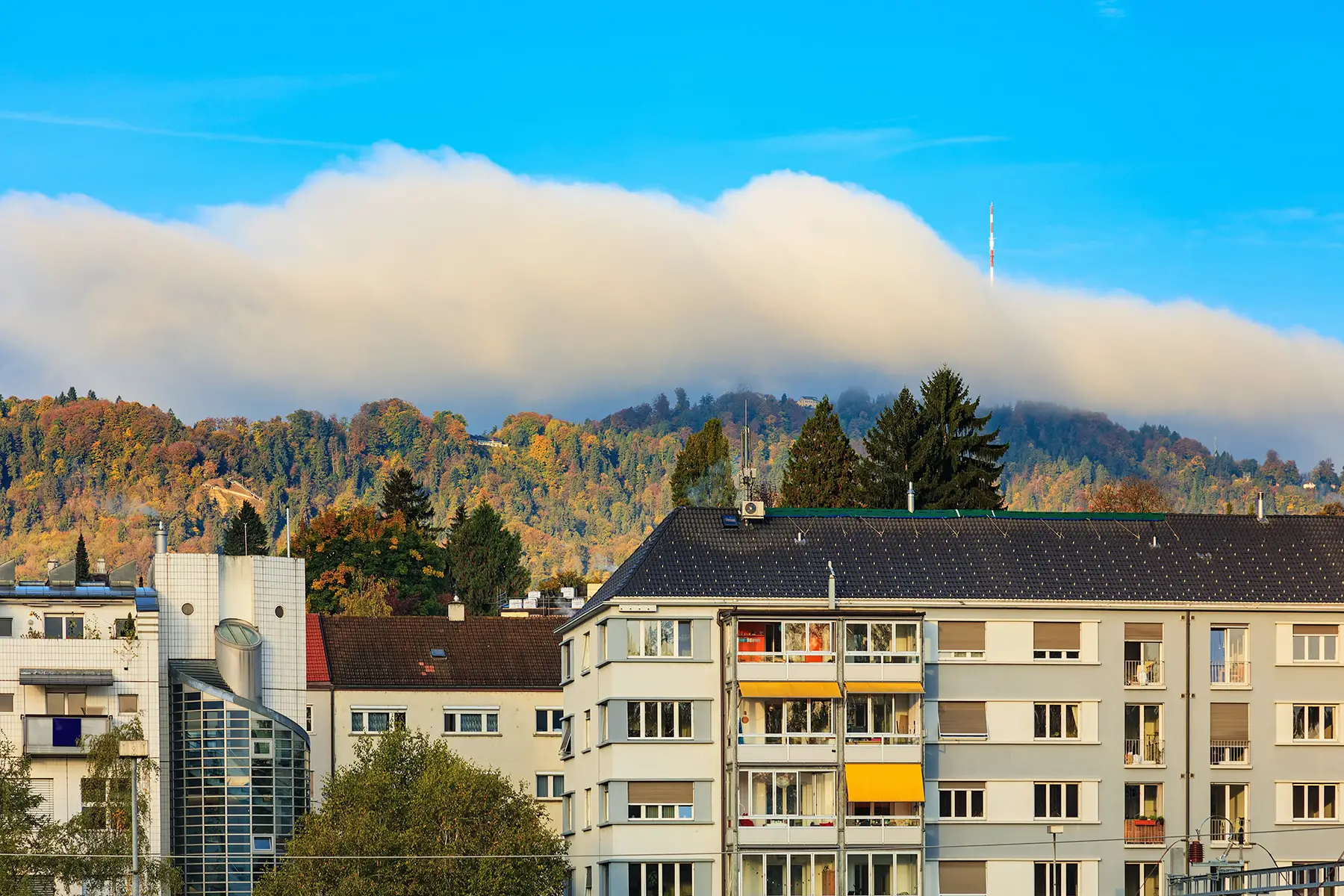
Those with a B residence permit can buy one Swiss property to live in. The 1983 Lex Koller Law restricts non-residents from purchasing property in Switzerland. Those without residency must apply for a license from their cantonal authority.
Once you buy property in Switzerland, you are listed as the owner in the Swiss Land Register. Property can only be transferred to someone who has the legal right to buy.
Rental laws in Switzerland
Anyone can rent housing in Switzerland if they are living in the country legally. If you rent in Switzerland, you should receive a tenancy contract that details the rights and responsibilities of both landlord and tenant.
Tenancy contracts are typically for 12 months. The rental deposit cannot exceed three months’ rent. The landlord must apply for an increase in rent and it should be in line with general price increases. All non-rental fees should be clearly detailed in the tenancy agreement.
Both parties have to give notice periods if they want to terminate the contract. Typically, a tenant can only terminate early if they find a replacement tenant. You can contact the Swiss government’s housing arbitration agency if you have any unresolved disputes or problems with a Swiss landlord.
Building laws in Switzerland
Those with the right to buy Swiss property are also allowed to build their own home. However, you will need to apply for a permit from your cantonal authority and follow the local building regulations.
This also applies to building extensions on any Swiss property that you own. Each of the 26 cantons has its own particular regulations and procedures, so check with your local authority before going ahead.
Buying or renting in Switzerland?
Should you buy or should you rent in Switzerland? That depends on your own situation as well as on external factors such as the housing market and economic climate. Buying property could be wise if:
- you plan to live long-term in Switzerland
- you want the freedom to change fixtures and fittings and possibly make building modifications in your home
- house prices are relatively cheap or you think they may rise after you’ve purchased
- you are able to get a favorable mortgage
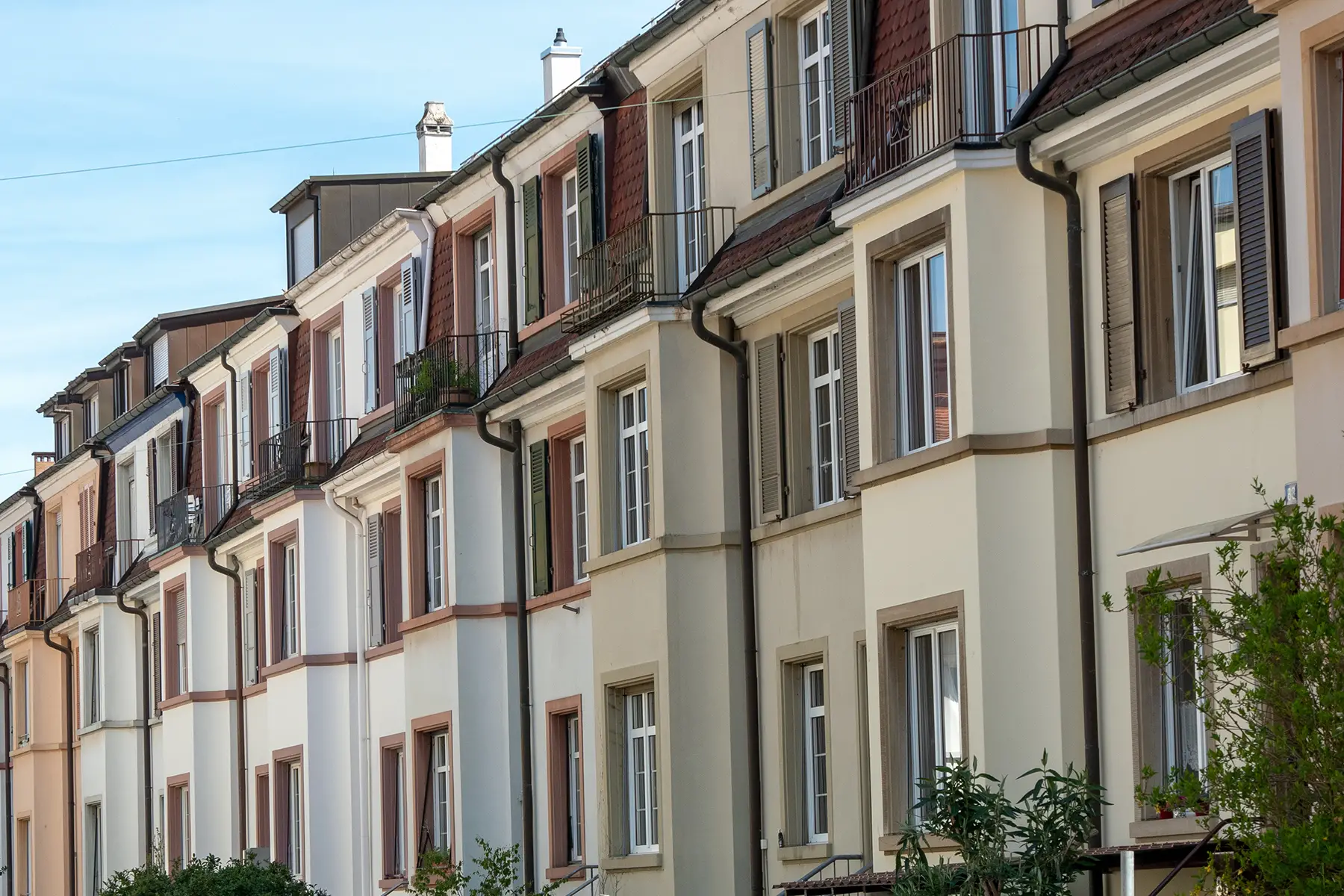
Renting might be better if:
- you prefer flexibility and don’t want to be tied down to one particular location
- your stay in Switzerland might not be long-term (for example, if you’re working on a temporary contract)
- the housing market looks unstable and there is a risk of losing money
- you don’t want to tie up large sums of money in property
Many foreigners choose to rent at first when they move to Switzerland, before buying once they’ve settled and have a better idea of what they’re looking for.
Renting in Switzerland
Renting housing in Switzerland is more common in urban areas, particularly in cities such as Geneva, Basel, and Zurich. Apartments are the most common form of rental accommodation. However, you can also find plenty of houses including cottages in rural areas. Apartments are typically quite sizeable and often have access to a communal garden.
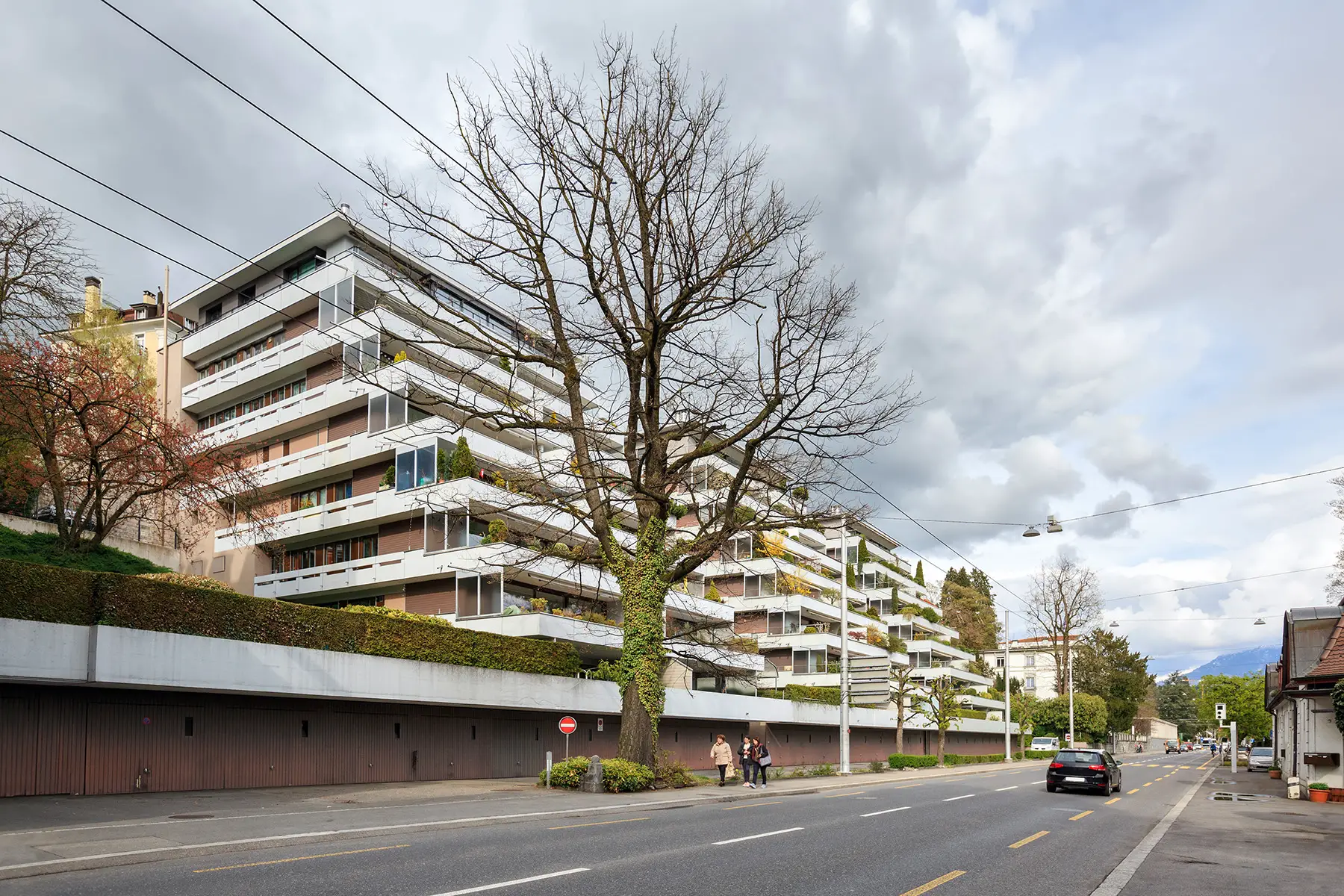
Accommodation is usually rented unfurnished. You can find a property to rent through a Swiss real estate agent through an online portal, such as:
You normally have to go through an application and vetting process as well as pay a fee. Expect to be asked to provide evidence of employment, salary, and residency status.
Social housing in Switzerland
In comparison to many European countries, Switzerland doesn’t have much social housing at all. However, there have been moves in the last few years to encourage the Swiss government and the cantons to make at least 10% of new builds social housing.
Social housing in Switzerland varies across cantons, both in terms of availability and application procedures. Rent is typically set at a percentage of market value. The property owner is generally either the cantonal authority or a local housing association.
Priority for social housing is usually given to those who:
- have earnings below a certain threshold
- are homeless or at risk of homelessness
- currently live in poor quality accommodation
- have medical conditions that mean they have specific housing needs
Renting out your property in Switzerland
Renting out property in Switzerland is not hugely popular among expats. This is due to the relatively low rental yields – with Switzerland having among the lowest rates in Europe – as well as restrictions on property purchases for some resident groups.
If you want to rent out a Swiss property, you can do it through a real estate agent or online property portal. Fees vary depending on the portal you choose. Online portals tend to be cheaper, but you will receive less of a service. For example, you’ll have to conduct viewings and liaise with potential tenants yourself.
Buying a home in Switzerland
You can buy housing in Switzerland through real estate agents and online portals. You can also check specialist property papers and property sections of the main newspapers.
The process of buying Swiss property usually takes around three months, sometimes a bit longer. Once you find a home you want to buy, you’ll need to make an offer, arrange your finances (which may involve taking out a Swiss mortgage), and hire a notary to deal with the contract and complete the sale. Fees are typically up to 3.5% of the overall property cost and include notary fees, registration fees, and real estate taxes.
Affordable housing in Switzerland
Switzerland doesn’t have much in the way of low-cost housing and there is minimum state intervention. In terms of help to buy, there are no general assistance schemes for low earners or those in need of help. Some mortgage lenders do offer favorable rates for first-time buyers to help them onto the property ladder.
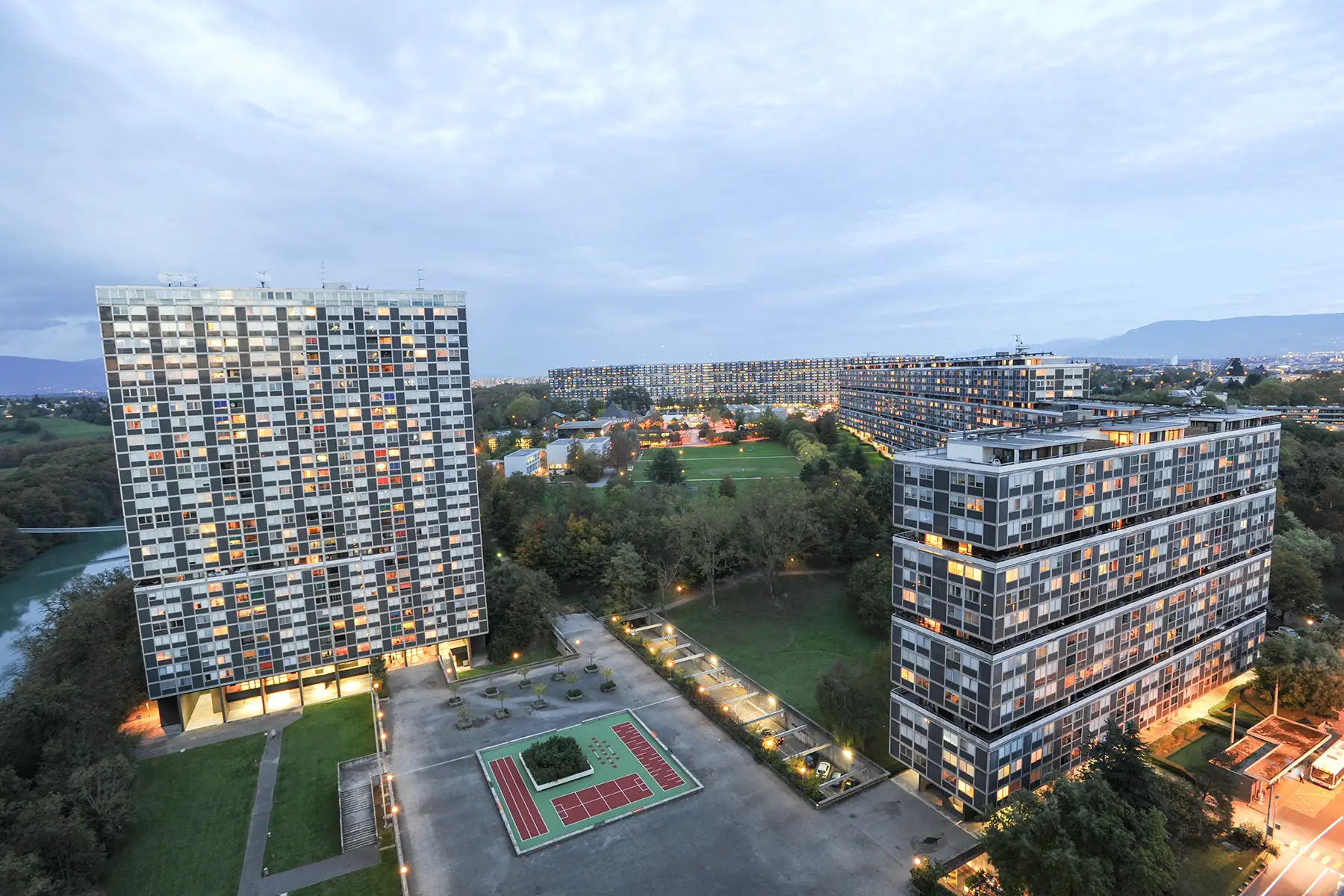
There have been public campaigns to provide more subsidized social housing for renters, especially in cities such as Geneva and Basel. These include a commitment to make at least 10% of new housing affordable. However, the most recent affordable housing initiative was rejected in 2020.
Switzerland doesn’t have the strict rent price controls that you see in other European countries. However, many contracts stipulate that rent increases should be linked to current interest rates. Following a downward revision of the national interest rate to 1.25% in 2020, many Swiss renters became eligible for a rent reduction.
Sustainable housing in Switzerland
Switzerland has increased its efforts in green housing in recent years but still falls behind what is necessary, according to experts. Minergie is the standard for renewable new-builds in Switzerland, certifying between 10–25% of new buildings across the country over the last 20 years.
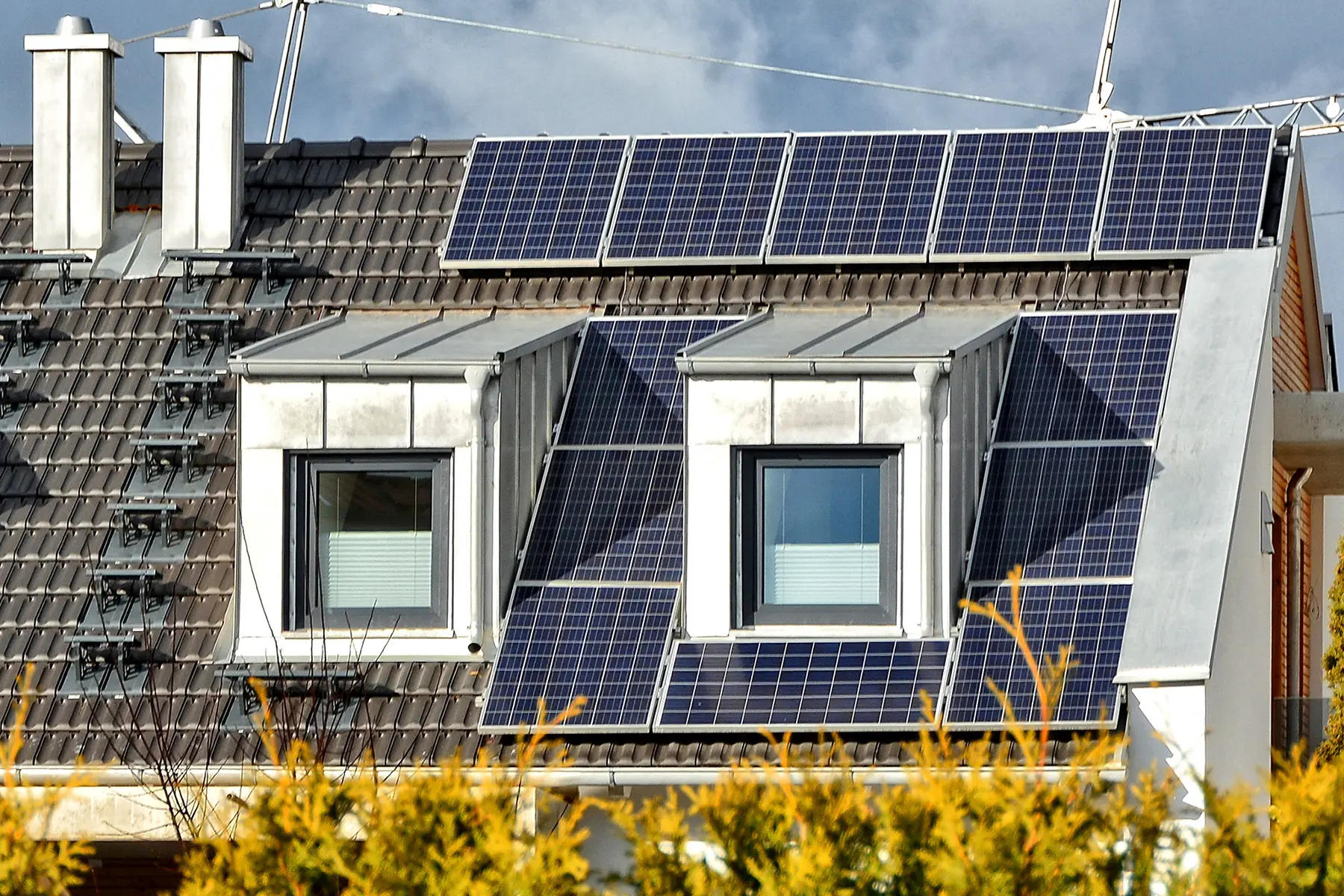
Currently, only around 1% of existing buildings have been refurbished to boost their energy efficiency. The Swiss government set up a scheme in 2010 using money from a CO2 levy to provide funding for homeowners to convert their properties to make them more green. However, poor promotion of the scheme and lack of regulatory enforcement have been blamed for the low take-up.
You can get an energy performance certificate for your Swiss home to show how energy-efficient it is on a scale from A (highly efficient) to G (poor).
Mortgages in Switzerland
If you’re from an EU/EFTA country or have a Swiss B or C residence permit, you can apply for a mortgage if you’re buying property. Mortgage lenders offer up to 80% of the property value, with lengthy repayment periods of 50 years or more often available.
Current mortgage rates in Switzerland (April 2021) are around 1.1% to 1.8% for fixed-rate mortgages and around 2.8% for variable mortgages. You can also find other types of mortgages such as LIBOR mortgages and offset mortgages.
Mortgages in Switzerland are mostly provided through banks, although you can also find independent brokers and agents. Your lender arranges the loan for you and tells you what documentation you need to provide.
Selling a home in Switzerland
Selling housing in Switzerland typically involves the following stages:
- getting the property surveyed to make sure there are no building defects
- having the property valued and setting an asking price
- putting the property on the market through an estate agent, property website, or advertising it privately
- accepting an offer after prospective buyers have viewed the property
- hiring a notary to draw up the sales contract and act on your behalf
- exchanging contracts and completing the sale
- paying any fees owed, usually between 3.2% and 5.4% of the sale price
Building a home in Switzerland
Those with the legal right to buy Swiss property can choose instead to buy land with the intention of building their own housing in Switzerland. Costs vary across the cantons, with the average being around CHF 350 per square meter. You also need to pay construction costs, of course.
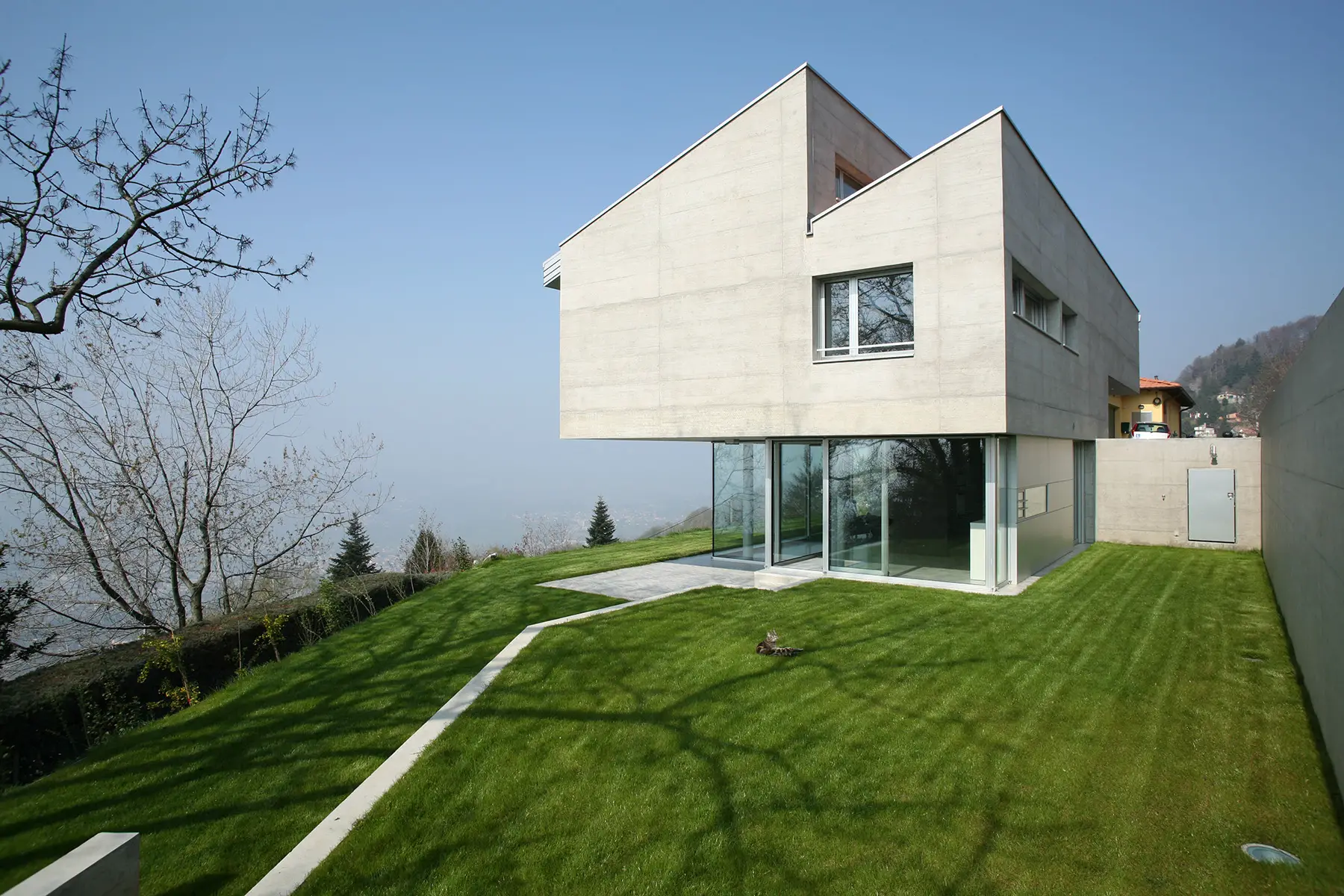
To build a home in Switzerland, you need a building permit, which you can get from your local cantonal authority. You can buy plots of land from real estate agents as well as Swiss property websites such as Homegate and Immoscout24.
Useful resources
- ch.ch – Swiss government website with information on topics such as housing, homeownership, and rent
- Federal Statistical Office – data related to dwellings in Switzerland
- ArchDaily – examples of residential architecture in Switzerland
